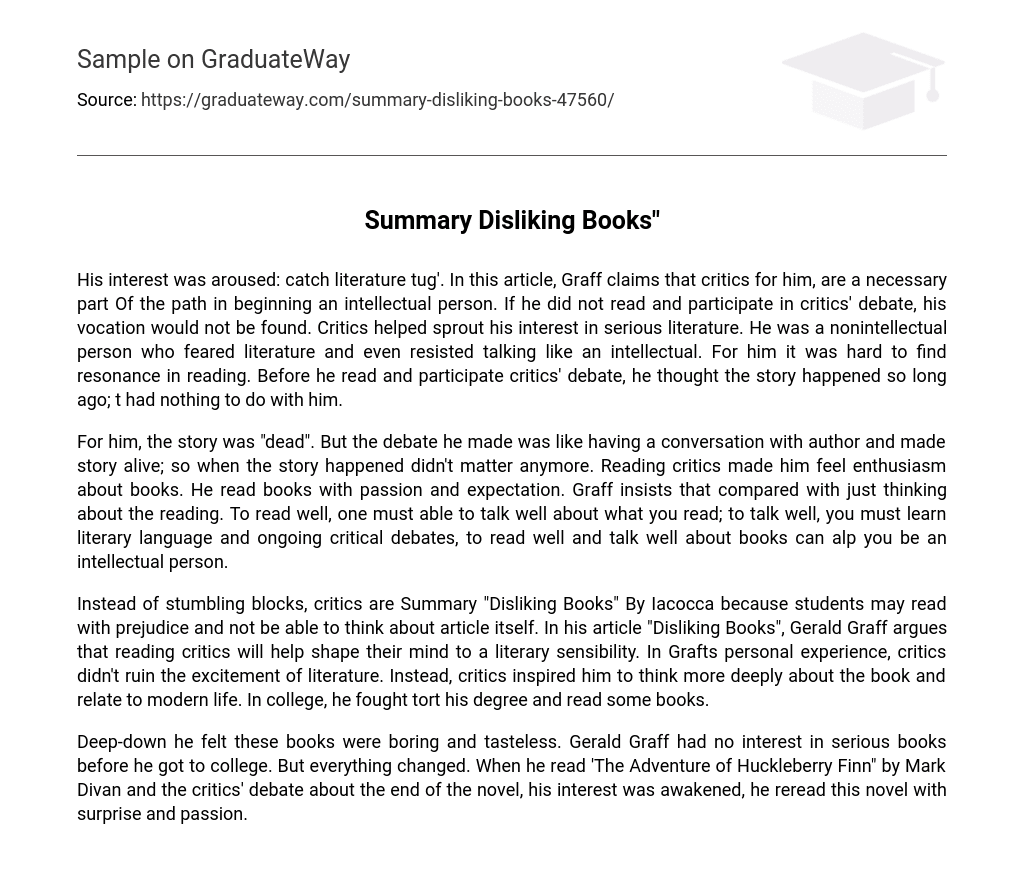His interest was aroused: catch literature tug’. In this article, Graff claims that critics for him, are a necessary part Of the path in beginning an intellectual person. If he did not read and participate in critics’ debate, his vocation would not be found. Critics helped sprout his interest in serious literature. He was a nonintellectual person who feared literature and even resisted talking like an intellectual. For him it was hard to find resonance in reading. Before he read and participate critics’ debate, he thought the story happened so long ago; t had nothing to do with him.
For him, the story was “dead”. But the debate he made was like having a conversation with author and made story alive; so when the story happened didn’t matter anymore. Reading critics made him feel enthusiasm about books. He read books with passion and expectation. Graff insists that compared with just thinking about the reading. To read well, one must able to talk well about what you read; to talk well, you must learn literary language and ongoing critical debates, to read well and talk well about books can alp you be an intellectual person.
Instead of stumbling blocks, critics are Summary “Disliking Books” By Iacocca because students may read with prejudice and not be able to think about article itself. In his article “Disliking Books”, Gerald Graff argues that reading critics will help shape their mind to a literary sensibility. In Grafts personal experience, critics didn’t ruin the excitement of literature. Instead, critics inspired him to think more deeply about the book and relate to modern life. In college, he fought tort his degree and read some books.
Deep-down he felt these books were boring and tasteless. Gerald Graff had no interest in serious books before he got to college. But everything changed. When he read ‘The Adventure of Huckleberry Finn” by Mark Divan and the critics’ debate about the end of the novel, his interest was awakened, he reread this novel with surprise and passion.





